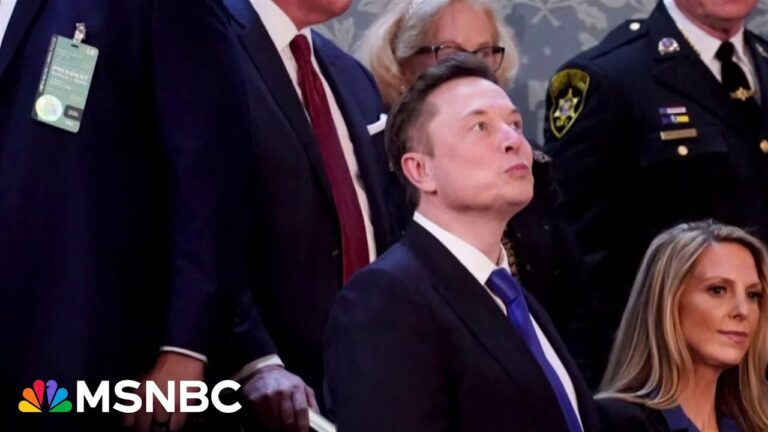Video at the bottom!
In a recent discussion, President Trump expressed that he believes his relationship with Elon Musk is effectively over, following a public feud that intensified last week. When NBC’s Kristen Welker asked if Trump had any desire to mend ties with Musk, he firmly replied “no” and stated he had no plans to speak with the Tesla CEO again. Trump also cautioned Musk, indicating he would face “very serious consequences” if he funded Democratic candidates who oppose Republicans supporting the key budget bill. However, he did not elaborate on what these consequences might entail.
National Politics Reporter Julia Manchester joined the conversation, where she weighed in on Trump’s assertion that Republicans are more unified now. Despite some factions of fiscal conservatives—like Senator Ron Johnson—initially hesitant about the bill, she suggested that overall, the Republican Party stands firmly behind Trump. She noted Musk’s substantial influence due to his vast Twitter following, making him a potential voice of opposition, but Trump still retains significant sway within the party.
As the discussion progressed, Manchester emphasized the cultural alignment between Trump and Musk, highlighting Musk’s recent social media posts echoing Trump’s sentiments on immigration. The broader political implications of Musk’s funding were also examined, especially regarding Democrats who might be hesitant to accept financial support from him given his affiliations.
Discussion points also included Congressman Ro Khanna’s call for Democrats to engage with Musk, though many in the party may find it challenging due to Musk’s recent financial and political actions. The possibility of Musk funding not just Democratic challengers but also Republican candidates aligned with fiscal conservatism was raised as a significant concern moving forward.
The conversation then shifted to Musk’s influence in electoral politics, with experts reflecting on the mixed success he has had in recent campaigns. Even as a major donor, his impact on the electoral outcomes, particularly in significant races like the Wisconsin Supreme Court, raised questions about the effectiveness of his political contributions. Despite being a top individual donor, not all candidates Musk supported were victorious, prompting a perception among some Democrats and Republicans that his potential threat could be overstated.
Ultimately, the dialogue underscored the complexities of Musk’s role in American politics, dissecting the dynamics between him and Trump, as well as his potential influence on future elections.


